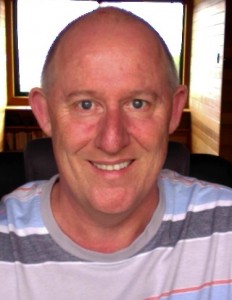 Australia Counselling member Chris O’Shea is a counsellor based in Hobart, Tasmania. Chris has a passion for assisting and supporting the mental health of those that find themselves unemployed.
Australia Counselling member Chris O’Shea is a counsellor based in Hobart, Tasmania. Chris has a passion for assisting and supporting the mental health of those that find themselves unemployed.
He is interested in the mental health issues of the long-term unemployed and how he can support those people in developing more resilience and hope for a better future.
This is an area of mental health that is often neglected by governments and the community, yet it’s effects are far and wide, and can lead to deep despair and hopelessness in people of all ages and genders.
Here’s what Chris had to say about this important area of mental health…
Tell us a bit about your practice- where it is, who you work with and the services you offer
I run a successful Professional Counselling and Consultancy service to individuals and couples, as well as to the community, health, employment, education and business sectors.
I offer counselling, supervision, employee assistance and workplace assessment and training services in-person, on-site, via Skype or phone. I currently operate clinics across Hobart, including Hobart City, Moonah, Bridgewater and Rosny.
How did you become interested in counselling and working with the unemployed?
My entire career has been within the human services field, with particular focus on servicing the needs of those most disadvantaged in our society. Almost 12 years ago, I took the opportunity to retrain as a counsellor, as I felt I had lost touch in my senior roles in making a real difference at the coalface. My background and experience in the field has seen me develop partnerships with organisations who share my passion for supporting the unemployed, such as Campbell Page.
What are some of the challenges that the long-term unemployed are facing in Australia?
The key challenges facing the long-term unemployed in Australia and – in particular – Tasmania include: low educational attainment, poor literacy skills, poor diet, affordable and secure housing, poverty, social exclusion, criminal activity, substance abuse, family breakdown and domestic violence, disability and mental health issues.
It is not uncommon for those presenting to my service to have at least three of these challenges listed and sometimes up to six or seven.
How does unemployment affect a person’s mental health?
The impact of long-term unemployment on a person’s mental health can be profound. Indeed, I would estimate that around 4 out of 5 of presenting clients have been diagnosed or believe they have some form of mental health problem. This is unsurprising, given the emotional pain associated with many of these stressors.
Many feel a sense of hopelessness, helplessness, isolation and insecurity. Many are experiencing unresolved losses, are their own worst critic and hold a great deal of anger and rage. Many have social phobias and anxieties.
How do you believe people are able to overcome long-term unemployment?
I believe the starting point for people being able to overcome long-term unemployment is that they are prepared to ask for help, consider their options and have a key motivator for change. It is also critical for services to operate on the basis of unconditional positive regard, acknowledgment, understanding and non-judgement. I often hear stories about clients’ either not following through on or dropping off the radar with past efforts to seek help. Some of the reasons given include: they didn’t understand me, I felt judged, they talked about themselves and/or they wouldn’t listen to me.
Tell us about your approach and why you believe the way you work is effective in helping people overcome the challenges of unemployment
My approach is twofold – to work on the issues of priority for the client at any given time and to develop open and positive working relationships with other key stakeholders to facilitate client access to available services and assistance. As this work is often done with limited sessions available, it is important to be realistic with the client, so they are able to make informed decisions about their priority areas of focus. For example, a long-term jjob seekermight identify a short course they want to do. I would work with their Employment Consultant to see how they could assist with course costs. Practical and relevant ‘quick wins’ can often see an improvement in a client’s sense of hope and outlook and strengthen the therapeutic relationship.
Tell us what a client can expect to experience in an initial counselling session with you
At the first session I start off by asking the client if they’ve had counselling in the past and if so, what their experience was like? Their answers help me decide how I will word my introduction which will vary slightly between someone new to counselling and someone who isn’t. A list of barriers to employment will have been provided by the referring Employment Consultant which I will discuss with the client, as well as talk about any other issues important to them. The balance of the session is for the client to tell their story. The goal for the end of the first session is for the client to be able to identify and prioritise the key areas they want to work on over our remaining sessions.
On a personal note, tell us something that you’re passionate about or love to do in your spare time
My life partner and I moved to Tasmania for the environment and lifestyle. Our shared passions are the natural environment, our home and garden, leading a healthy and active life, laughter and – of course – our dog Jasper. We are passionate about the important roles we each play in servicing our communities, which are both challenging and rewarding. Living a balanced life is important to our capacity to sustain our efforts.
To contact Chris or to make an appointment, please visit his Australia Counselling profile or website.





Leave a Reply